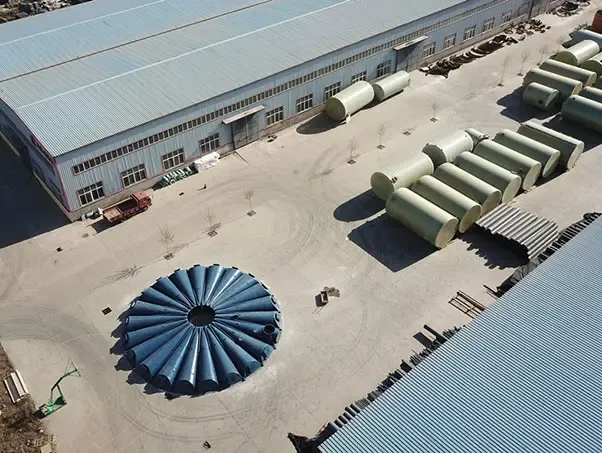
-
 Afrikaans
Afrikaans -
 Albanian
Albanian -
 Amharic
Amharic -
 Arabic
Arabic -
 Armenian
Armenian -
 Azerbaijani
Azerbaijani -
 Basque
Basque -
 Belarusian
Belarusian -
 Bengali
Bengali -
 Bosnian
Bosnian -
 Bulgarian
Bulgarian -
 Catalan
Catalan -
 Cebuano
Cebuano -
 China
China -
 China (Taiwan)
China (Taiwan) -
 Corsican
Corsican -
 Croatian
Croatian -
 Czech
Czech -
 Danish
Danish -
 Dutch
Dutch -
 English
English -
 Esperanto
Esperanto -
 Estonian
Estonian -
 Finnish
Finnish -
 French
French -
 Frisian
Frisian -
 Galician
Galician -
 Georgian
Georgian -
 German
German -
 Greek
Greek -
 Gujarati
Gujarati -
 Haitian Creole
Haitian Creole -
 hausa
hausa -
 hawaiian
hawaiian -
 Hebrew
Hebrew -
 Hindi
Hindi -
 Miao
Miao -
 Hungarian
Hungarian -
 Icelandic
Icelandic -
 igbo
igbo -
 Indonesian
Indonesian -
 irish
irish -
 Italian
Italian -
 Japanese
Japanese -
 Javanese
Javanese -
 Kannada
Kannada -
 kazakh
kazakh -
 Khmer
Khmer -
 Rwandese
Rwandese -
 Korean
Korean -
 Kurdish
Kurdish -
 Kyrgyz
Kyrgyz -
 Lao
Lao -
 Latin
Latin -
 Latvian
Latvian -
 Lithuanian
Lithuanian -
 Luxembourgish
Luxembourgish -
 Macedonian
Macedonian -
 Malgashi
Malgashi -
 Malay
Malay -
 Malayalam
Malayalam -
 Maltese
Maltese -
 Maori
Maori -
 Marathi
Marathi -
 Mongolian
Mongolian -
 Myanmar
Myanmar -
 Nepali
Nepali -
 Norwegian
Norwegian -
 Norwegian
Norwegian -
 Occitan
Occitan -
 Pashto
Pashto -
 Persian
Persian -
 Polish
Polish -
 Portuguese
Portuguese -
 Punjabi
Punjabi -
 Romanian
Romanian -
 Russian
Russian -
 Samoan
Samoan -
 Scottish Gaelic
Scottish Gaelic -
 Serbian
Serbian -
 Sesotho
Sesotho -
 Shona
Shona -
 Sindhi
Sindhi -
 Sinhala
Sinhala -
 Slovak
Slovak -
 Slovenian
Slovenian -
 Somali
Somali -
 Spanish
Spanish -
 Sundanese
Sundanese -
 Swahili
Swahili -
 Swedish
Swedish -
 Tagalog
Tagalog -
 Tajik
Tajik -
 Tamil
Tamil -
 Tatar
Tatar -
 Telugu
Telugu -
 Thai
Thai -
 Turkish
Turkish -
 Turkmen
Turkmen -
 Ukrainian
Ukrainian -
 Urdu
Urdu -
 Uighur
Uighur -
 Uzbek
Uzbek -
 Vietnamese
Vietnamese -
 Welsh
Welsh -
 Bantu
Bantu -
 Yiddish
Yiddish -
 Yoruba
Yoruba -
 Zulu
Zulu
fiberglass pipe
Fiberglass Pipe A Durable Solution for Modern Infrastructure
In the ever-evolving world of construction and engineering, finding durable and efficient materials is crucial. One material that has gained significant traction in recent years is fiberglass, particularly in its application as piping. Fiberglass pipe, composed of a mixture of glass fibers, resin, and other additives, offers a robust solution for various infrastructural needs.
What is Fiberglass Pipe?
Fiberglass pipe is essentially a composite material created by combining glass fibers with a plastic resin. This combination not only results in an incredibly strong product but also provides additional benefits such as resistance to corrosion, lower weight, and ease of installation. The manufacturing process involves winding glass fibers around a mandrel and saturating them with resin, which is then cured to create a solid pipe. The versatility in design and manufacturing allows fiberglass pipes to be produced in a variety of diameters and lengths, fitting the needs of numerous applications.
Advantages of Fiberglass Pipe
One of the most notable advantages of fiberglass pipe is its corrosion resistance. Unlike traditional materials such as steel or iron, fiberglass does not corrode when exposed to moisture or harsh chemicals. This characteristic makes it particularly useful in industries like wastewater treatment, chemical processing, and oil and gas production, where pipelines are often subjected to aggressive environments.
Additionally, fiberglass pipes are considerably lighter than their metal counterparts. This reduced weight translates to lower transportation and labor costs during installation. The ease of handling and lower overall project costs make fiberglass an attractive option for contractors and engineers alike.
Moreover, fiberglass pipes boast excellent thermal insulation properties, which can help to maintain the temperature of the fluid being transported
. This feature is especially beneficial in industries where temperature control is critical, as it enhances the efficiency of processes and minimizes energy loss.fiberglass pipe

Applications of Fiberglass Pipe
The application of fiberglass pipe spans a vast range of industries. In the construction sector, it is increasingly used for water supply and drainage systems due to its longevity and resistance to weather conditions. In the oil and gas industry, fiberglass piping systems are utilized for transporting petroleum products, given their resistance to chemical degradation.
Furthermore, fiberglass pipes play a crucial role in the telecommunication sector, serving as conduits for cables and other sensitive equipment. Their non-conductive properties reduce the risk of electromagnetic interference, thus ensuring uninterrupted communication services.
Environmental Impact
With growing concerns about sustainability and environmental impact, fiberglass pipe presents a favorable alternative to conventional materials. Given its durability, fiberglass pipe has a longer lifespan, reducing the need for frequent replacements and minimizing waste. Additionally, as a recyclable material, it aligns with the principles of environmental responsibility and conservation.
Conclusion
In conclusion, fiberglass pipe represents a forward-thinking approach to addressing the challenges faced in various industries. Its unique combination of strength, corrosion resistance, lightweight nature, and versatility makes it an ideal choice for modern infrastructure projects. As industries continue to seek sustainable solutions, fiberglass piping is poised to play a significant role in shaping the future of construction and engineering. With its myriad of benefits, fiberglass pipe is not just a trend, but rather a lasting evolution in the world of materials.









